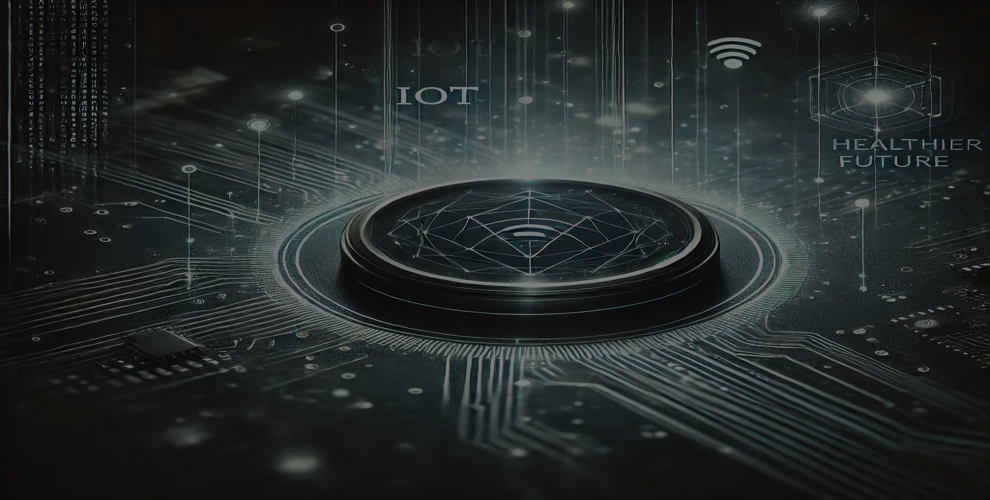
How IoT is Creating a Healthier Future: 6 Key Areas
Table of Contents
Introduction
Welcome to WikiGlitz!
We’ve brought you this amazing blog to explore how IoT is creating a healthier future by transforming healthcare in profound ways.
The integration of the Internet of Things (IoT) into healthcare is revolutionizing the industry, enhancing patient care, and paving the way for smarter, more personalized medical solutions.
From health monitoring to chronic disease management, IoT is at the forefront of medical innovation, making healthcare more efficient, accessible, and effective.
Key Takeaways:
- IoT is driving significant advancements in healthcare by improving patient care and making health monitoring more efficient.
- The future of IoT in healthcare lies in its ability to personalize treatment, improve chronic disease management, and enable preventive healthcare.
- IoT applications in healthcare are creating smarter, more connected systems that enhance overall well-being.
IoT in Health Monitoring: Empowering Patients and Providers
IoT is significantly transforming health monitoring, enabling both patients and healthcare providers to access real-time data.
IoT in health monitoring involves wearable devices, such as fitness trackers and smartwatches, that track vital signs like heart rate, blood pressure, and oxygen levels.
These devices provide continuous monitoring, allowing patients to manage their health proactively.
For healthcare providers, this real-time data is invaluable. It enables early detection of potential health issues, allowing for timely interventions.
A study by Deloitte suggests that IoT health benefits include reducing hospital readmissions by enabling remote monitoring of patients with chronic conditions.
Smart Healthcare with IoT: Enhancing Efficiency and Care Quality
Smart healthcare with IoT is about creating interconnected systems that enhance the efficiency and quality of care.
IoT-enabled devices in hospitals, such as smart beds, can monitor patient movements and adjust for comfort automatically.
Additionally, IoT in medical devices like smart infusion pumps ensures precise medication delivery, reducing the risk of human error.
According to a report by McKinsey & Company, IoT improves healthcare by optimizing hospital operations, improving patient outcomes, and reducing costs.
For example, smart sensors can monitor temperature and humidity levels in operating rooms, ensuring optimal conditions for surgeries.
IoT in Chronic Disease Management: A Lifeline for Patients
Chronic diseases like diabetes, heart disease, and respiratory conditions require continuous monitoring and management.
IoT in chronic disease management provides patients with tools to track their health daily. Devices such as glucose monitors and smart inhalers send data directly to healthcare providers, who can adjust treatment plans in real time.
The future of IoT in healthcare is particularly promising for chronic disease management.
A study published in the Journal of Medical Internet Research highlights that IoT solutions have led to a 30% improvement in patient adherence to treatment protocols, significantly improving health outcomes.
Personalized Medicine and IoT: Tailoring Treatments to Individuals
Personalized medicine is a key area where IoT is making a significant impact.
IoT in personalized medicine involves using data from IoT devices to tailor treatments to individual patients.
For instance, wearables can monitor a patient’s response to medication and adjust dosages accordingly, ensuring more effective treatment.
According to the World Health Organization, personalized medicine, supported by IoT, can lead to more accurate diagnoses and more effective treatments, particularly in managing chronic illnesses.
IoT in Preventive Healthcare: Focusing on Prevention
Prevention is better than cure, and IoT in preventive healthcare is making it easier to focus on prevention rather than just treatment.
IoT devices like wearable fitness trackers encourage healthy lifestyles by tracking activity levels, diet, and sleep patterns.
These devices can provide early warnings about potential health issues, allowing individuals to take preventive measures.
A report by PwC highlights that IoT in health and wellness is contributing to a shift from reactive to proactive healthcare, where prevention is prioritized.
This shift not only improves public health but also reduces the burden on healthcare systems.
The Future of IoT in Fitness and Wellness
The integration of IoT into fitness and wellness is creating new opportunities for maintaining and improving health.
IoT in fitness and wellness includes devices like smart scales, connected gym equipment, and apps that provide personalized workout plans based on real-time data.
A study by the American College of Sports Medicine suggests that IoT will continue to shape the fitness industry by enabling more personalized and data-driven approaches to health and wellness.
These IoT applications in health are helping people lead healthier lives by making fitness more accessible and personalized.
Conclusion
In conclusion, IoT is playing a pivotal role in creating a healthier future by revolutionizing various aspects of healthcare.
From enhancing health monitoring to enabling personalized medicine, IoT is making healthcare more efficient, effective, and patient-centered.
As IoT continues to evolve, its impact on the healthcare industry will only grow, leading to better health outcomes and a more connected healthcare ecosystem.
Follow WikiGlitz for more such insights into the transformative power of IoT and other emerging technologies.
FAQs
How does IoT improve chronic disease management?
IoT devices enable continuous monitoring of patients with chronic conditions, allowing for timely interventions and personalized treatment plans that improve health outcomes.
What role does IoT play in preventive healthcare?
IoT devices like fitness trackers and wearables help individuals monitor their health proactively, encouraging preventive measures and reducing the risk of serious health issues.
How is IoT contributing to personalized medicine?
IoT enables the collection of real-time health data, which can be used to tailor treatments to individual patients, resulting in more effective and personalized care.
What is the future of IoT in healthcare?
The future of IoT in healthcare includes advancements in personalized medicine, enhanced chronic disease management, and the continued integration of IoT into health and wellness, leading to a more connected and efficient healthcare system.
Want to keep up with our blog?
Our most valuable tips right inside your inbox, once per month.
Error: Contact form not found.
WikiGlitz Team
Welcome to WikiGlitz, your ultimate destination for tech insights and innovation. Our expert team is dedicated to delivering free resources and professional advice on various technology topics, including Artificial Intelligence, Cyber Security, Cloud Computing, and more. We strive to empower our readers with up-to-date information and practical guidance, ensuring you stay ahead in the rapidly evolving tech landscape. At WikiGlitz, we are passionate about making complex technology accessible to everyone. Our team of seasoned experts curates content that is both informative and engaging, helping you understand and leverage the latest tech trends. Whether you're a tech enthusiast or a professional, WikiGlitz is your go-to source for reliable, expert-driven content. Join us on this journey to explore and embrace the future of technology.





